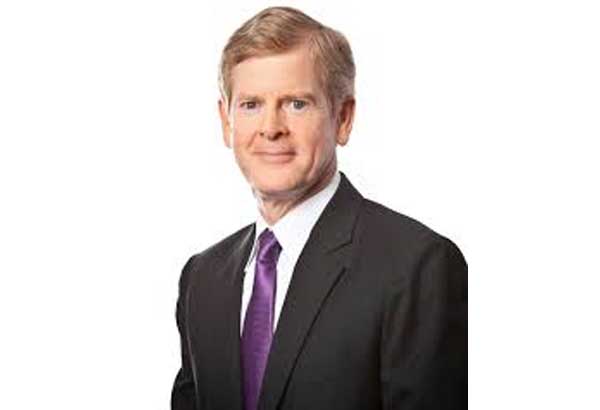
Human nature can have its flaws. We sometimes project one thing on another when the linkage is all wrong. We see a wildly barking dog and we equate the bark with the bite. Very often, as we learn, it’s not the case. The bark is worse than the bite.
Naturally, we equate tough talk with tough people. Again, not always the case. Donald Trump talks tough. But beyond the mere fact he can physically stand up, there is little evidence to suggest he has anything resembling a spine. From hanging on Daddy’s coattails to get his start in business; to dodging military service with the most questionable of excuses; to blaming others and refusing to have the strength to admit mistakes or take responsibility; the man is a poster boy for weakness. No, tough talk does not equate with tough people.
Relatedly, sometimes human nature leads us to believe that nice people are weak. And nothing could be further from the truth. Behind the grace of Mother Teresa laid great strength and courage. Behind the charm and humility of Manny Pacquiao lies the smile of a deadly assassin in the boxing ring. And this brings us to the curious case of the “talk” of Wall Street right now, the looming proxy battle between Procter & Gamble and activist investor Nelson Peltz of Trian Fund Management.
Now, activist investors are viewed by many as just slightly above cockroaches on the food chain. They are a pain in the rear — they yell and scream, driven by the premise “The squeaky wheel gets the grease.” They buy up significant positions in companies that they sense they can make a quick buck from. Under the guise of serving their investors, they squeak and squeak, seek a position of power such as a seat on the board, and then they engineer a series of “quick wins,” usually through massive cuts to prop up the results. Then, buoyed by one or two quarters of results, they drive up stock prices, cash out, and move on to the next victim. They are the proverbial vultures. They invade, feed, and move on to the next feasting. Sustainable value and longevity are not in their playbooks.
Many CEOs misplay the entry of an activist like Peltz. They coddle them. They try to reason with them. They try to win them over. And it’s foolish. It plays right into the activist’s hands! It’s like trying to reason with the terminator. Or trying to talk a cockroach out of leaving your home. They are on a single mission, and that is to create chaos, change, quick wins, cash out, and leave. CEOs don’t think like this nor should they, but activist investors do. It’s a fundamental mismatch of motivation. Trian, and Peltz, saw in P&G a potential high-profile, quick win. Results have lagged historical standards. There was high-profile CEO departure, which led to the questioning of P&G’s “promote from within” culture and a pondering if outside perspective was needed. It is a perfect scenario for an activist investor to position themselves as an “outside savior.” A way to add to their “legend” of yet another fast turnaround. These guys prey on the false mystique that they know something the rest of us don’t. They create the perception of being “magicians” who come in, spread some wisdom and magic dust, and “poof” — instant profits follow! They are akin to a weight-loss pill promising instant kilos falling off your body, promising quick returns with no effort. They don’t know a single thing about how to build a company that lasts. And how could they? They never stick around long enough to know.
Peltz has had his share of wins in this business. But he made some major mistakes along the way on this one. The biggest of all is, I suspect he underestimated P&G’s chairman and CEO, David Taylor.
Peltz made a classic human mistake. He confused niceness with weakness.
David Taylor is indeed a very good and very nice man. He cares about people. He is driven by good, old-fashioned values and principles. He is open-minded, a great listener, and humble. He comes across as a helpful stranger you might meet in a smalltown café. He’s not a shark and not a guy who would sit on The Apprentice and take joy in the false bravado of telling someone, “You’re fired!”
But don’t confuse niceness with weakness. If Peltz thought David Taylor was going to roll over and hand him a board seat on a silver platter because he seems like a nice guy, well, this was the biggest mistake of them all. David Taylor has a backbone made of grade-A hardened steel. Let’s not forget this is the guy who was once working in a factory with a great career in front of him, and decided to roll the dice and take a shot at rising all the way to the top. So, to get the required training in the commercial side of the business, he accepted to drop three levels (yes, three!) all the way to entry-level in marketing to start at the bottom. He re-entered the fray as a 40-plus-year-old father and husband, competing with a bunch of young bucks fresh off their MBAs who would eat their own flesh to get promoted.
This is the guy who later willingly left the comforts of his US career and hauled the family off to live in China when China was still the wild, wild East. This is the guy who took the job working the Western European Paper business when his two predecessors were chewed up and spit out in less than 12 months, and stabilized the whole ship and cleaned up more messes than a high school post-prom party leaves. No, David Taylor has what they call cojones. A fight with one activist investor? He isn’t going to roll over if this isn’t right for P&G shareholders and P&G employees. Bring it on!
Peltz severely underestimated David Taylor. He met him, saw that he was a nice man, and then made the mistake of confusing niceness with weakness. And now he is in the fight of his life. And one he is likely going to lose.
David Taylor has the facts on his side, and investors like nothing more than facts. Since Taylor has taken over at P&G, total shareholder return has grown +27 percent, versus the S&P 500 achieving +24 percent over the same period. P&G’s last quarter, which ended June 30, delivered stellar growth in earnings of +19 percent versus a year ago. P&G stock this week hit a 2.5-year high and seems poised to go higher. Organizational morale is high and the business goes from strength to strength. P&G has its mojo back. Smart investors are going to recognize that this is time to let the current P&G team run their playbook. It’s working.
And Peltz? Well, he brings, at best, a mixed record. Over the same time that Taylor as led P&G, the companies where Peltz sits on the board have grown only +8 percent, a mere fraction of P&G’s results that Peltz seems so vocal about! And the one company that we can draw a direct correlation with is Mondelez, another consumer-goods multinational like P&G. And Mondelez, behind Peltz’s activism, is down -3 percent over the same period. More disruption and noise than adding value, it would seem.
It’s not a pretty picture for Peltz. But it gets even worse.
Peltz thought he would be smart and bring in a few former P&G leaders to assist him. He is reportedly paying $250,000 for the service. His money would have been better spent speculating on bitcoins. He hired a former senior executive who has been out of the loop for nearly 10 years. That’s a lifetime in fast-moving consumer goods. It’s a laughable choice on so many fronts.
And finally, Peltz is about to take on the most daunting marketing machine he has ever encountered. Peltz might be loud and he might be good with numbers, but he is about to be schooled in PR and marketing. P&G created the concept of “brand management.” P&Gers can market just about anything. They are going to turn their acumen on this proxy fight like no other, to protect the future and the people of P&G — something Peltz cares little about.
It’s going to be a good battle and it’s going to be fun to watch. But it’s going to be a battle the smart bettor will say Peltz and Trian are going to lose, and lose badly. It all started with Peltz underestimating David Taylor. And now Peltz goes into a proxy battle with a paper tiger at his side, and up against the best brains in marketing.
The moral of the story? Never confuse niceness with weakness. And Trian better buy some body bags. They are going to need them.
